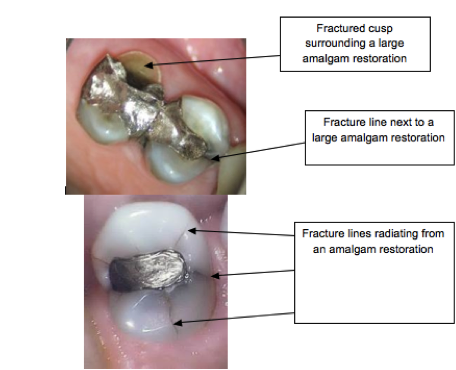The family of a man who took his own life say it was due to his failure to receive compensation after botched implants left him in pain for years.
According to reports, Clive Worthington, 81, was awarded compensation for the failed treatment that left him in agony in 2008.
However, he did not receive £116,000 (£86,000 in damages plus £30,000 costs) linked to a decision by the defence organisation to not indemnify the dentist.
According to reports, the implants were undertaken in Hungary by a dentist registered in the UK.
A spokesperson for the DDU said: ‘We are unable to comment on individual cases.
‘It is very rare that we are unable to offer our members support: we consistently assist well over 99{c754d8f4a6af077a182a96e5a5e47e38ce50ff83c235579d09299c097124e52d} of members who approach us for help with claims and other legal matters.
‘The Dental Defence Union exists as a not-for-profit, membership organisation. We exist solely to support our members with problems arising from their practice in the UK and Ireland and would never decline a member’s request for assistance without good reason.’
Tragic case
Kevin Culliney, a partner at Densura, part of Lockton Companies LLP, said: ‘The tragic case of Clive Worthington, who suffered years of pain following failed implants and who sadly took his own life after failing to recover the £116,000 that was awarded by the court due to the decision by the defence organisation to not indemnify his dentist, has shone a light once again on the whole issue of indemnity.
‘This comes hot on the heels of the latest consultation on indemnity by the Department of Health and Social Care (DHSC).
‘This in turn follows the 2018 consultation on the future of indemnity which was prompted by the case of disgraced and jailed surgeon Ian Patterson who was also declined indemnity by his defence body.
‘DHSC have pointed to a decision on indemnity reform later this year and the outcome will have ramifications for individual dentists and practice owners.
‘The issue in question here is whether discretionary indemnity provided by medical defence bodies, who are not subject to Financial Conduct Authority regulation is appropriate.
‘It should be pointed out that the three main dental defence organisations have each been providing indemnity for over 100 years.
‘During this time they have by and large done a good job of protecting the profession but perhaps patients and dentists would be better protected if they received a written insurance contract, issued by a regulated provider backed by an adequate compensation fund such as the Financial Services Compensation scheme.
‘Existing insurance providers are all independently regulated, and it is estimated that around 30{c754d8f4a6af077a182a96e5a5e47e38ce50ff83c235579d09299c097124e52d} of dentists now purchase insurance backed indemnity rather than defence organisation membership.
Tough situation
‘Insurance brings with it its own challenges, not the least of which is Insurance premium tax at 12{c754d8f4a6af077a182a96e5a5e47e38ce50ff83c235579d09299c097124e52d}. Cover from provider to provider does vary and most importantly so does the service proposition.
‘Any dentist looking to purchase insurance needs to be reassured that the provider has invested in a team of practicing dentists with a legal qualification and that these are supported by a team of in-house lawyers, in turn with access to leading law firms and barristers, should the full cavalry ever be required.
‘You need to know that the provider has your back in a tough situation either against an angry patient, an aggressive law firm or perhaps worst of all the GDC.
‘The case of Clive Worthington highlights that the DHSC consultation is needed and that changes could very well be made to improve things going forward to benefit dentists and patients.’
Dr Matthew Lee is the chief executive of the Medical Defence Union (MDU), the parent company of the Dental Defence Union (DDU). He said: ‘We were saddened to read about the recent case highlighted by the family of Mr Worthington.
‘While we cannot comment on the specifics of this or any individual case, we can comment on the wider points raised about types of indemnity on offer to dental professionals.
‘The DDU is the specialist dental division of the MDU, a not-for-profit mutual company owned by its members who currently include around 200,000 professionals working in medicine and dentistry.
Dentolegal issues
‘Our team of dedicated dentists and lawyers support thousands of members each year with a range of dentolegal issues and investigations. We also provide members with indemnity for clinical negligence claims for treatment provided in the UK and Ireland.
‘The discretionary indemnity we provide means we consider each request for assistance individually and can be flexible to meet the wide-ranging needs of our members. Unlike an insurance contract, our indemnity is not bound by any exclusions, policy end dates or financial limits. It is important to note that the DDU uses its discretion to help members, not to avoid doing so. We have operated successfully on this basis for over 135 years.
‘It is very rare that we are unable to offer our members support: we consistently assist well over 99{c754d8f4a6af077a182a96e5a5e47e38ce50ff83c235579d09299c097124e52d} of members who approach us for support with claims and other legal matters.
‘The scope of our membership benefits necessarily has a defined remit but our members can be reassured that we would never turn down a request for assistance without good reason. Our member guide outlines circumstances where we are unlikely to assist, such as when the clinical incident for which support is sought happened when the dentist was not a member of the DDU.
Gold standard
‘We continue to be fully engaged with the Department of Health and Social Care’s work on appropriate indemnity and look forward to the publication of their conclusions in due course. The latest statement on the consultation pointed out the disadvantages of changing the current system.
‘These included additional costs and “difficulties arising from a move to regulated products, including in any transition.”
‘We believe it is right that dental professionals can choose from a variety of options when looking for dental indemnity. But we are confident that the unlimited, occurrence based discretionary indemnity the DDU and other defence organisations provide to the vast majority of UK dentists and doctors is not just appropriate, but the gold standard.’
Follow Dentistry.co.uk on Instagram to keep up with all the latest dental news and trends.




